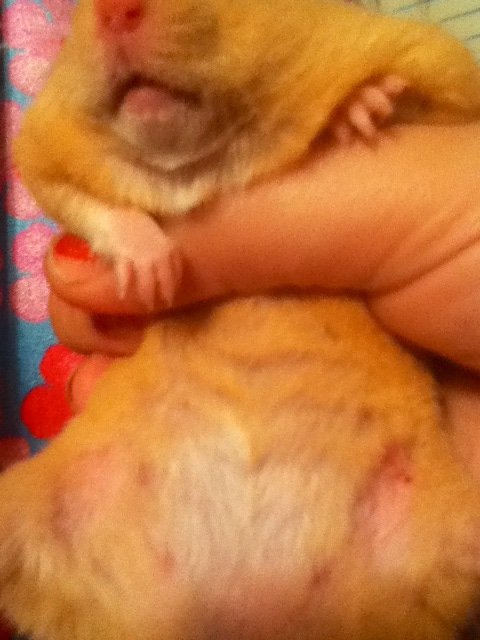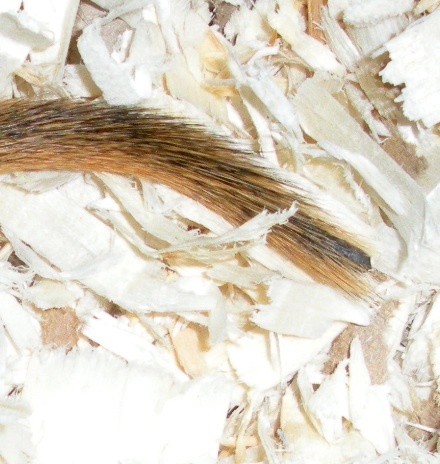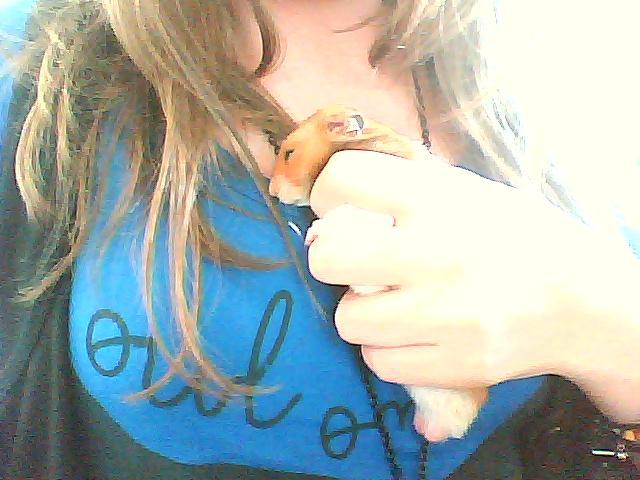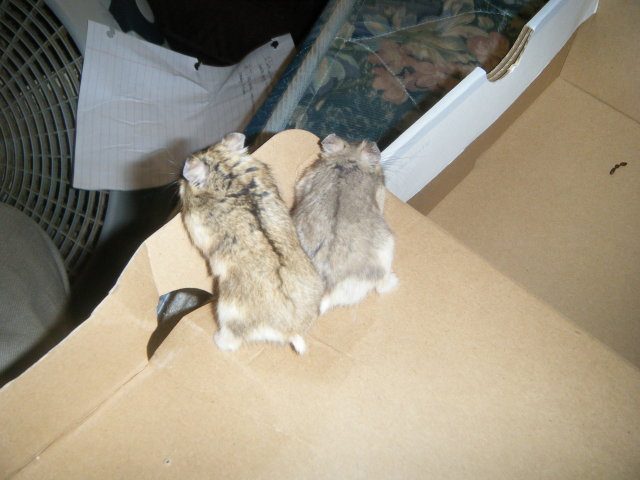QuestionMy 10 year old daughter had a Syrian hamster for 8 months then it died of some type of rectal disease where his intestines were coming out of his rectum. We bought her a new hamster that was 8 weeks old. It died about a week later, we don't know why. We bought her another hamster. This time we bought a new cage, new water bottle and a different type of bedding. It also died a week later. We don't know why but it had a "wet tail" a few days before it died. We bought all 3 hamsters from different breeders. Our daughter is very responsible, has taken very good care of each hamster and hasn't dropped any of them. Why are our hamsters dying? Can you please help us? We want to buy her another hamster but are afraid it will die also.
AnswerHi Valerie
I'm really sorry to hear about your hamsters. This must have been a real shock for you.
It is difficult to know for sure what is happening. The first hamster who died from a rectal problem might have had wet tail. Wet tail is a term that is often given to any condition where the rear end is wet, but in actual fact it is a very serious disease that causes acute which often leads to rapid death due to dehydration. Did your hamster have or any signs of constipation? Rectal prolapses are usually associated with either of these - where the hamster has had to strain to go to the toilet. Sadly, in most cases there is little that can be done.
The second hamster that you had - were there any signs at all that he was ill or did his death come as a real shock to you? Was there any sign of diarrhea or difficulty breathing?
The third hamster - I note that you changed the cage - this is good because wet tail can be deadly and can live on in a cage even if it has been disinfected. Young hamsters are especially prone to getting a form of wet tail. This is because they can get very stressed - at the breeders often they aren't handled at all. Then they are moved to a pet shop and then to another owner. The constant change of location and food can bring this condition on. Unfortunately, when a hamster gets they lose body fluids so rapidly that unless they are replaced with oral rehydration and pro biotics, they can die very quickly.
Do you have any other pets that could be infecting the hamsters? What are you feeding them? You should give them a dry hamster mix (this is made up from seeds, biscuits etc and usually comes ready mixed), in addition they should have a small amount of fresh vegetables daily - avoid lettuce as this can cause. Never give chocolate as this is highly toxic to a hamster and can kill them. It is also very important that the cage is situated in a dry area of the house - away from damp, and away from direct sunlight. They ideally need to be kept at a constant temperature. Also, hamsters rely heavily on their sense of smell as their eye sight is so bad, therefore it is very important that they are not exposed to any perfumes, air fresheners, fumes or insecticidal sprays etc as these can make them very ill. Where abouts in your house is the cage situated? If the area is damp and their food gets damp it can attract a fungus - spores from this are deadly to hamsters if they breath them in and they cause an illness called aspergillosis. This causes breathing difficulties and is very difficult to treat. The cage should be cleaned out weekly and a special small pet disinfectant used (don't use bleach or other household cleaners on the cage). Make sure the cage is fully dry before putting the bedding in. I always use a wood chipping on the floor of the cage and a shredded paper bedding for the nest. The wood chippings must be suitable for small animals and it is worth checking the packet and only buying ones that are safe. Never use pine, cypressus or cedar as these contain a volatile oil called thujone which can cause breathing problems in hamsters.
I don't know if any of these were the cause of your hamsters' deaths - I am just making a few suggestions. It could be that you were just incredibly unlucky and just happened to choose ones who had things wrong with them. However, before considering another hamster I would strongly advise that you check the area where the cage will be situated and also what food you give. Make sure that there are no fumes, direct sunlight, damp, excessive cold or any sprays that are likely to be near the cage. The cage should not be situated next to the TV or stereo system. Also, if you can, get a hamster that has been hand reared. These are often much better and less stressed than those you buy at pet shops where they have come from breeders. Some vets or local shops will advertise for homes for these. When you get your hamster, make sure it looks bright, its eyes are bright and not crusty and that its fur is in good condition. Also, check for any lumps and bumps. Whilst it may still be a bit sleepy if you wake them up, after a relatively short time their ears should be upright and they should be curious as to what is happening. Have a look in the cage to see their droppings to make sure they are normal. If there are others in the cage, make sure they all look well too. You shouldn't really home a hamster until they are at least 5 weeks old - therefore if you are offered one younger than this I would be inclined to refuse it as they usually stay with their mum until they are 4 weeks old, then they are sexed and the males separated out. I've found that hamsters who remain in groups until they are 5 or 6 weeks of age (by 6 weeks Syrians are usually all fighting and need a cage of their own anyway) tend to thrive better than those on their own from a very early age.
If you do decide to get another hamster and it does develop signs of wet tail in that there is , you need to act urgently. I always keep a packet of oral rehydration powder in the house for such emergencies. This should be mixed up according to the instructions and give via a dropper if needed. Diarrhea kills hamsters because they dehydrate so quickly. Hamsters with also need probiotics - you can buy a pet one called Avipro, or you can get acidophillus capsules from the health shop and use these if necessary either in a dropper, or place in the hamster's water bottle daily. Treatment should continue until their droppings look normal.
Also, when you get your new hamster home, let it settle for a day before handling it unless it wants to come out. Talk to it a lot so that it gets used to your voice and recognizes you. When you go to handle it (if it isn't already very tame), rub some of the bedding into your hands to put its scent on you, then place a hand each side and quickly 'scoop' him up. Immediately transfer him onto your clothing as they feel more comfortable on this. Talk to him all the time and if he starts wandering off, slide a hand under him and gently bring him back. If you increase handling time daily he will gain more confidence with you. Hopefully this will prevent him getting stressed.
I hope this helps.
Regards

 Hamster dry skin patches
Question
Hamster spots hamster spots 2
Hel
Hamster dry skin patches
Question
Hamster spots hamster spots 2
Hel
 Gerbil tail problems
QuestionQUESTION: Hello,
I have a female gerbil that
Gerbil tail problems
QuestionQUESTION: Hello,
I have a female gerbil that
 Vincent my hamster
Question
this is vincent
my hamster has a small lump on
Vincent my hamster
Question
this is vincent
my hamster has a small lump on
 my dwarf hamster is acting strange
Question
Buttons
ive had her for almost a year her name
my dwarf hamster is acting strange
Question
Buttons
ive had her for almost a year her name
 What type?
Question
My hamsters.
I have to hamsters and was wonder
What type?
Question
My hamsters.
I have to hamsters and was wonder